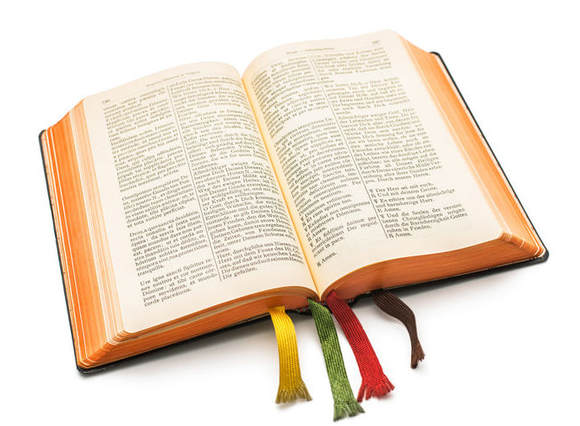But in this article we are looking at something entirely different – the passages of scripture most quoted by the biblical writers themselves. If we believe in the inspiration of the biblical writings, then we could also say these are the passages that were most often quoted under inspiration of the Spirit of God – or, put another way, the verses to which God most frequently referred!
So what are those verses? There is no question as to their identity as two verses stand out above all others. Among the writers of the Old Testament, the most commonly quoted verse is found in the book of Exodus: “maintaining love to thousands, and forgiving wickedness, rebellion and sin …” (Exodus 34:7A).
These memorable words were spoken to Moses by God regarding a central aspect of his own identity. They appear again at Numbers 14:18-19 where Moses reminds God of them, and they are quoted repeatedly in the writings of the later biblical writers.
The passage is quoted, for example, three times in the book of Psalms alone. In Psalms 86:15 David quotes it in a prayer for God’s mercy, and in Psalms 103:8 and 145:8 he quotes it again in praising God’s deeds. The prophets Jonah (4:2), Joel (2:13), Micah (7:18) and Nehemiah (9:17, 31) all quote it,and it is alluded to in other verses such as 2 Chronicles 30:9 when King Hezekiah urged the people of Judah to return to God.
When we turn to the New Testament we also find a verse that is quoted more often and by more New Testament writers than any other. That verse is found in the book of Psalms: “The Lord says to my lord: ‘Sit at my right hand until I make your enemies a footstool for your feet’” (Psalm 110:1).
This verse is quoted or alluded to some 23 times by seven of the nine authors of the New Testament, and the much-quoted words “the Lord says to my lord” were often used by the Christian writers as an expression of the divine nature of Jesus Christ alongside God. In Matthew 22:44 we see that Jesus himself referred the Pharisees to this verse to make the point that the Messiah is more than David’s son – he is also David’s Lord.
Psalm 110:1 is also an expression of God’s ongoing purpose in history. The words "Sit at my right hand until I make your enemies a footstool for your feet" were used frequently from the beginnings of Christianity. The book of Acts shows us that Peter included them in his sermon when the New Testament Church was founded on the Day of Pentecost (Acts 2:32-36) specifically to show that “God has made him both Lord and Messiah, this Jesus whom you crucified” (vs.36). Peter and Paul repeatedly use the verse or allude to it in their writings. Paul, for example, refers to it in stressing the basis of the kingdom of God (1 Corinthians 15:22-25).
We know historically that the earliest Christian confession was simply “Jesus is Lord!” and this confession was primarily a declaration that Jesus had been enthroned at God’s right hand as Lord and King – the very substance of Psalm 110:1.
So these two verses – Exodus 34:7 and Psalm 110:1 summarize the nature of God and the nature of his Son. The two tie together in many ways, of course. Both foreshadow many other verses. So it is hardly surprising that we find them as often as we do and that they are truly “favorite” biblical verses.
Of course, we have no way of knowing which verses in the Bible are really “God’s favorites,” but it is certain that the two verses we have looked at here were regarded as being of tremendous importance in setting out the message of the Scriptures – not just by us, its readers, but by the biblical writers themselves.

 RSS Feed
RSS Feed
